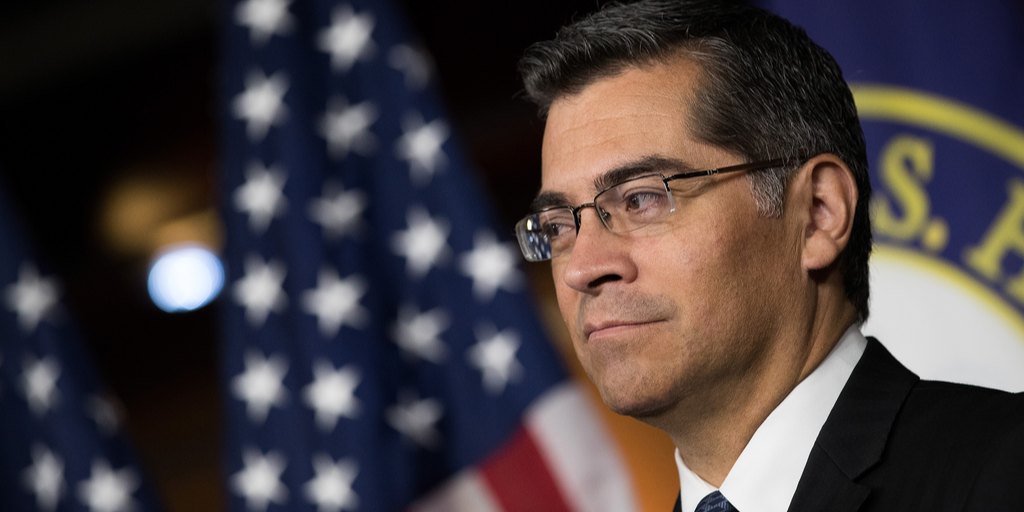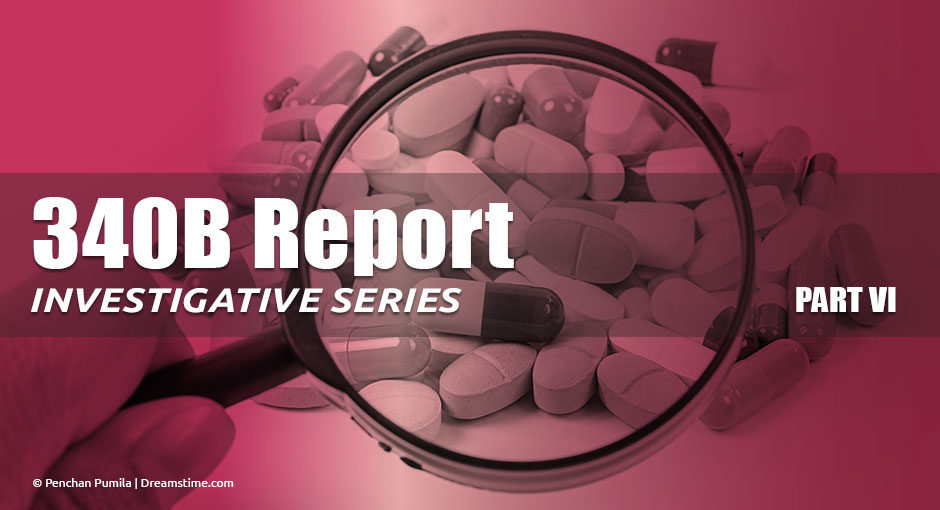Part 6 of 6—What Happens Next For Revlimid, Pomalyst, Thalomid, and 340B?
As we described in Parts 2 and 3 of this series, in 2018, an ex-Celgene vice president responsible for the company’s 340B program compliance alleged in a whistleblower lawsuit that Celgene’s reason for limiting Revlimid, Pomalyst, and Thalomid’s distribution is “to deny access to the drugs at the [340B] ceiling price,” saving the company hundreds of millions of dollars per year.
Bristol Myers Squibb, which bought Celgene in 2019, told us its limited distribution network for the three drugs “complies with the law; it was audited by the Health Resources and Services Administration (HRSA) with no adverse findings, it does not discriminate against 340B covered entities and it supports compliance with the Food and Drug Administration’s (FDA) strict Risk Evaluation and Mitigation Strategies (REMS) safety protocols for these products. To date, HRSA has not communicated any required changes in these practices to BMS. Revlimid, Pomalyst, and Thalomid are widely available to patients.”
Despite the gravity of the whistleblower’s allegations, the whistleblower’s vantage point on Celgene’s 340B compliance, and the dollar value of the alleged fraud, the federal government told a federal district judge in Philadelphia in late February 2020 that it would not enter the case on the whistleblower’s behalf.
We asked the Office of the U.S. Attorney for the Eastern District of Pennsylvania, where the case was filed, why the United States decided not to intervene. A spokesperson for the office told us it is against U.S. Justice Department (DOJ) policy to discuss criminal or civil charging decisions.
Enforceability of 340B Guidance
One possible reason DOJ didn’t intervene is that the case was filed and disposed of at a time when the U.S. Health Resources and Services Administration (HRSA), the federal agency that runs the 340B program, was publicly questioning its power to enforce its 340B program guidance. After Eli Lilly & Co. announced plans to place restrictions on the use of 340B discounts in contract pharmacy settings in July 2020, HRSA framed the matter this way in a July 2020 statement to 340B Report:
HRSA’s current authority to enforce certain 340B policies is limited unless there is a clear violation of the 340B statute. Without comprehensive regulatory authority, HRSA is unable to develop enforceable policy that ensures clarity in program requirements across all the interdependent aspects of the program.
It is possible, lawyers agree, that, in the context of HRSA’s position at the time about the limits of its enforcement power, a judge’s decision about whether Celgene violated the 340B statute ultimately might have turned on Celgene’s need to obey HRSA’s 340B program guidance, the enforceability of which Celgene could have challenged.
That’s exactly what’s happened in the lawsuits five drug manufacturers have filed to block federal sanctions over their decisions to stop or impose conditions on 340B discounts on drugs dispensed by contract pharmacies. HRSA’s power to enforce its 340B program guidance is one of the points of contention in those lawsuits.
In a sign HRSA’s enforcement power might now be somewhat less in doubt now, the Biden administration in January revoked Trump administration executive orders requiring agencies to treat guidance documents as non-binding in law and practice except as incorporated into a contract.
More recently, on May 17, HRSA told the six drug manufacturers that have stopped or limited 340B discounts on drugs shipped to contract policies that their actions are in direct violation of the 340B statute. HRSA’s fight with these manufacturers is now more clearly about whether they allegedly violated the 340B statute, and less about whether they allegedly disregarded 340B guidance.
In other forums, however, HRSA keeps bringing up the potential weakness of its 340B guidance.
On May 28, in its budget request for the coming fiscal year, it asked Congress again to grant it general regulatory authority over the 340B program. It repeated that its “enforcement ability is limited, as guidance does not provide HRSA appropriate enforcement capability.” It said if it had general rulemaking authority over 340B, it could help “covered entities and manufacturers in their ability to satisfy 340B Program expectations and where oversight needs to be enhanced.” Elsewhere in the budget request for 340B, HRSA said its “limited authority has impacted the ability to enforce compliance to its fullest.”
In a June 9 congressional hearing, U.S. Health and Human Services (HHS) Secretary Xavier Becerra made a pitch for giving HRSA the power over 340B it seeks.
“I hope that what you’ll do is give us more authority to actually to give clear guidance on what can be done and can’t be done on 340B,” Becerra said.
“That would be helpful, because this way the manufacturers can’t play the shell game with us,” he said. “They know what their responsibility is.” This position is likely to create some anxiety in the 340B covered entity world since 340B provider groups have regularly opposed HRSA’s request for broad regulatory authority over the program.
HRSA’s Continuing Interest in Myeloma Drugs
When the federal district judge dismissed the whistleblower’s claims against Celgene last year, it left the door open for the federal government to sue the company over the same concerns at a later date.
BMS/Celgene has disclosed in U.S. Securities and Exchange Commission (SEC) filings going back to 2015 that HRSA had inquired about the company’s limited distribution networks for Revlimid, Pomalyst, and Thalomid and its 340B compliance. It has said in those filings that its revenues and profits could be adversely affected if it has to change sales or pricing practices regarding distribution of those drugs under 340B. It also has observed that the government can impose significant monetary penalties on manufacturers found to have knowingly and intentionally overcharged 340B covered entities, resulting in harmful negative publicity or business disruption.
We asked HRSA and HHS on Jan. 6, 2021 for more information about HRSA’s 340B program compliance audit of Celgene during fiscal year 2016, the whistleblower’s allegation that Celgene in the audit misrepresented that it was honoring its 340B pricing obligations, and BMS/Celgene’s disclosures in its SEC filings that HRSA has inquired about Celgene’s limited distribution networks for the three myeloma drugs and Celgene’s compliance with the 340B program. We also asked for documents related to any possible findings of knowing and intentional charging above the 340B ceiling price by Celgene and/or BMS, imposition of civil monetary penalties, and repayments to covered entities for overcharges.
The HHS Office of the Secretary’s Freedom of Information Act (FOIA) desk took the lead on responding to our request. On May 18, HHS told us that ” we have received a response from our program office” and that the FOIA desk was reviewing it and would provide us with an update, which we have not yet received.
State Attorneys General and HHS Secretary Becerra’s Interest
In December, a bipartisan group of 29 state attorneys general (including the District of Columbia’s) sent a letter to then-HHS Secretary Alex Azar urging HHS to address Eli Lilly, AstraZeneca, Sanofi, Novartis, United Therapeutics, and other drug makers’ “unlawful refusal to provide critical drug discounts to covered entities.”
Former California AG Becerra, who succeeded Azar as HHS Secretary, was one of the driving forces behind the bipartisan letter.
“Notwithstanding clear legal requirements, some drug manufacturers have brazenly ceased providing 340B pricing to covered entities using contract pharmacies and others have unilaterally imposed conditions on 340B pricing,” Becerra and the other attorneys general wrote.

Celgene is among them, they said.
“This conduct by drug manufacturers is not a just recent problem,” the attorneys general told Azar in one of the letter’s footnotes. “As early as 2015, Celgene, now owned by Bristol Myers Squibb, implemented a policy that limited the distribution network for Revlimid, Pomalyst, and Thalomid, such that 340B pricing was not available to all 340B covered entities.”
Whether Beccera will take 340B program enforcement action against BMS/Celgene now that he is in charge of HHS remains to be seen. The federal government’s strong defense of its 340B contract pharmacy policies, in lawsuits brought against it by Lilly, AstraZeneca, Sanofi, Novartis, and Novo Nordisk, make covered entities optimistic that Becerra will do so.
We asked Becerra’s office last week what he was going to do about the “problem” of entities being unable to get 340B pricing on Revlimid, Pomalyst, and Thalomid that he and other state AGs brought to Azar’s attention in December. We are awaiting a reply.
Have you had trouble accessing 340B pricing for Revlimid and other BMS/Celgene myeloma drugs? Do you have other stories that we should be covering? Reach out to us at tom.mirga@340breport.com.
Have you found this investigative series and our other reporting to be important? Please pass the word to your colleagues outside of your organization and let them know about our lowest-ever discount offer: 25% off our regular subscription rates, available through June 21. They can subscribe now using coupon code INVESTIGATE25. For questions, please contact reshma.eggleston@340breport.com.


